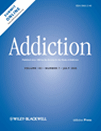To investigate how brief alcohol interventions are delivered in routine practice in the Swedish health care system.
A cross-sectional sample of 6000 individuals representative of the adult population aged 18–64 years registered in the Swedish total population register was randomly drawn. Data were collected in 2010 by means of a mail questionnaire. The response rate was 54%.
The questionnaire consisted of 27 questions of which 15 variables were extracted for use in this study. Whether alcohol had been discussed and the duration, contents, experiences, and effects of any conversations about alcohol, as reported by patients themselves, were assessed.
Sixty-six percent of the respondents had visited health care services in the past 12 months and 20% of these had had one or more conversations about alcohol during these visits (13% of the population aged 18–64 years). The duration of the conversations was generally brief, with 94% taking less than 5 minutes, and were not experienced as problematic. The duration, contents, experiences, and effects of these conversations generally varied between abstainers, moderate, hazardous and excessive drinkers. Twelve percent of those having a conversation about alcohol reported that it led to reduced alcohol consumption. Reduced alcohol consumption was more likely when conversations were 1-10 minutes rather than less than 1 minute and included advice on how to reduce consumption.
Population survey data in Sweden suggest that when healthcare professionals give brief advice to reduce alcohol consumption, greater effects are observed when the advice is longer and includes advice on how to achieve it.
Read Full Abstract
Request Report E-Mail: per.nilsen@liu.se
Read Full Abstract
Request Report E-Mail: per.nilsen@liu.se
